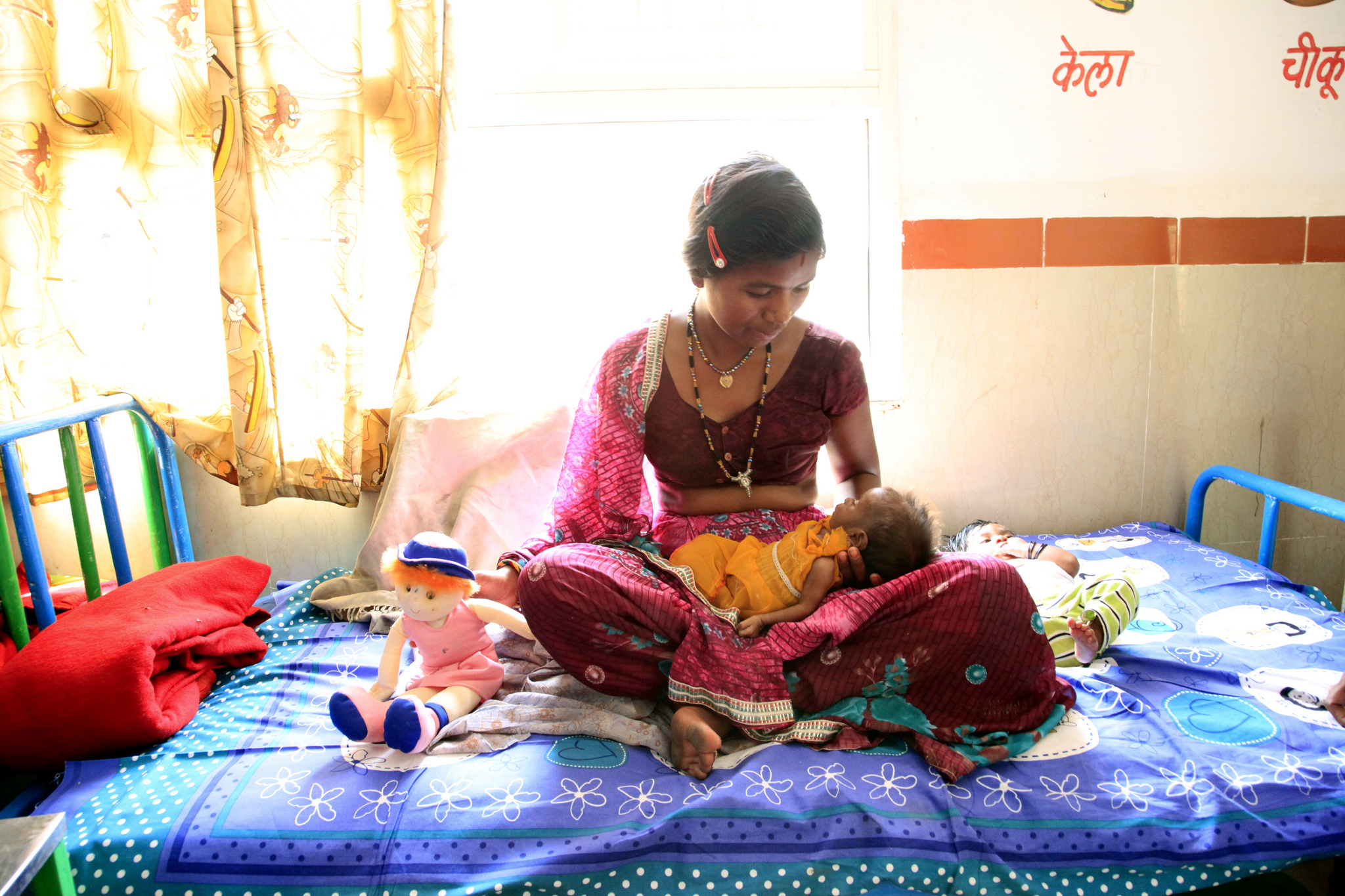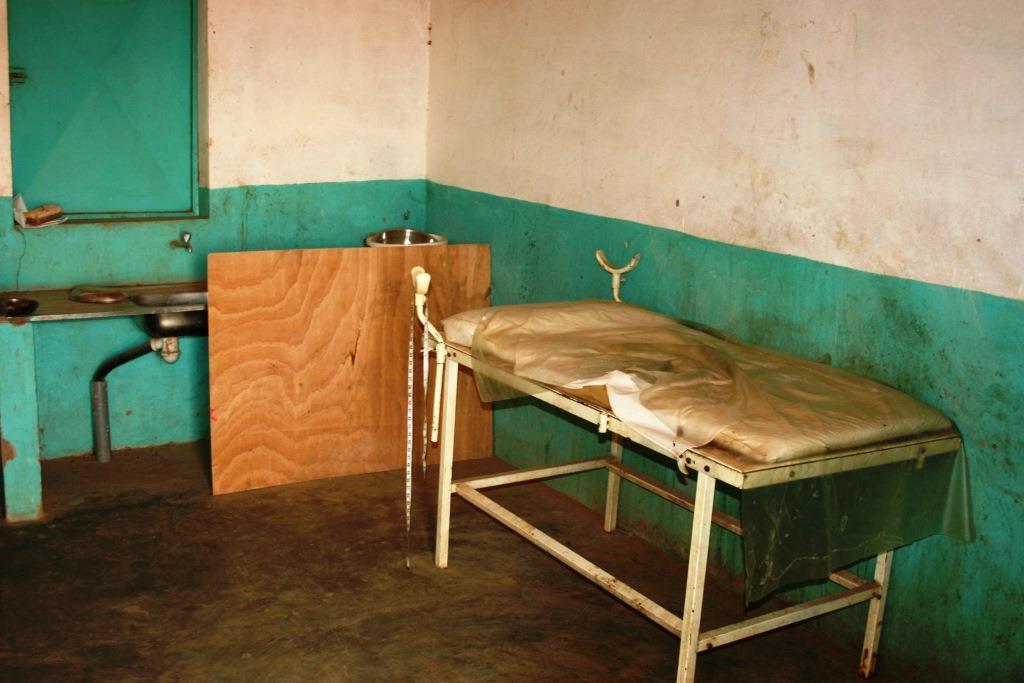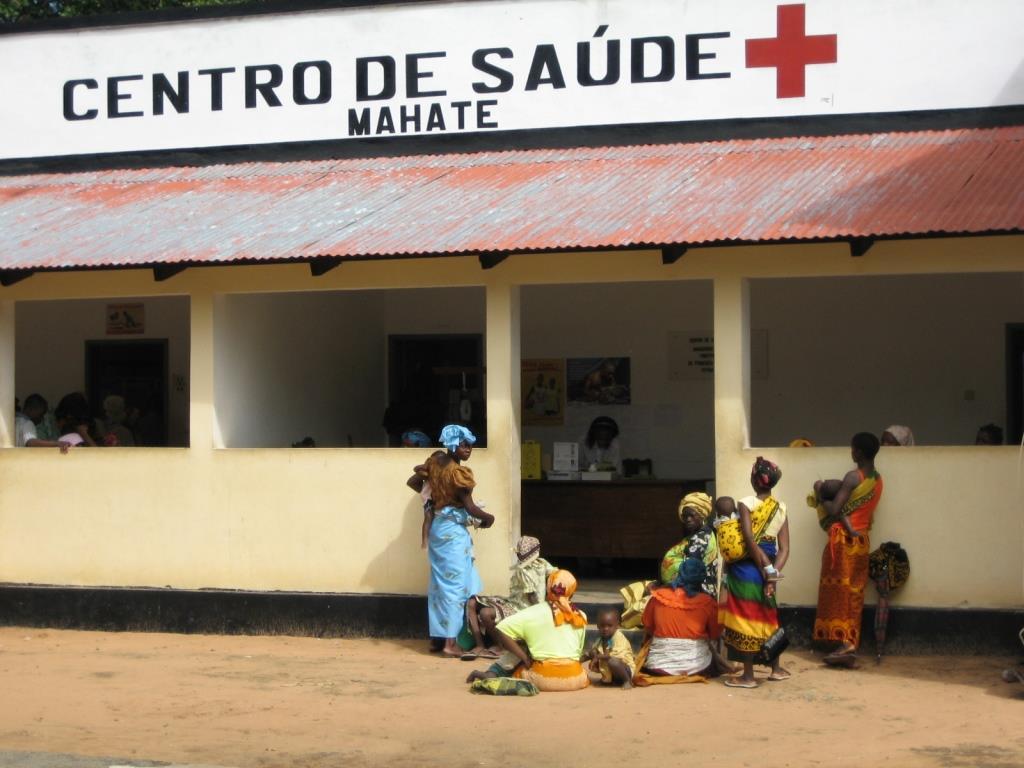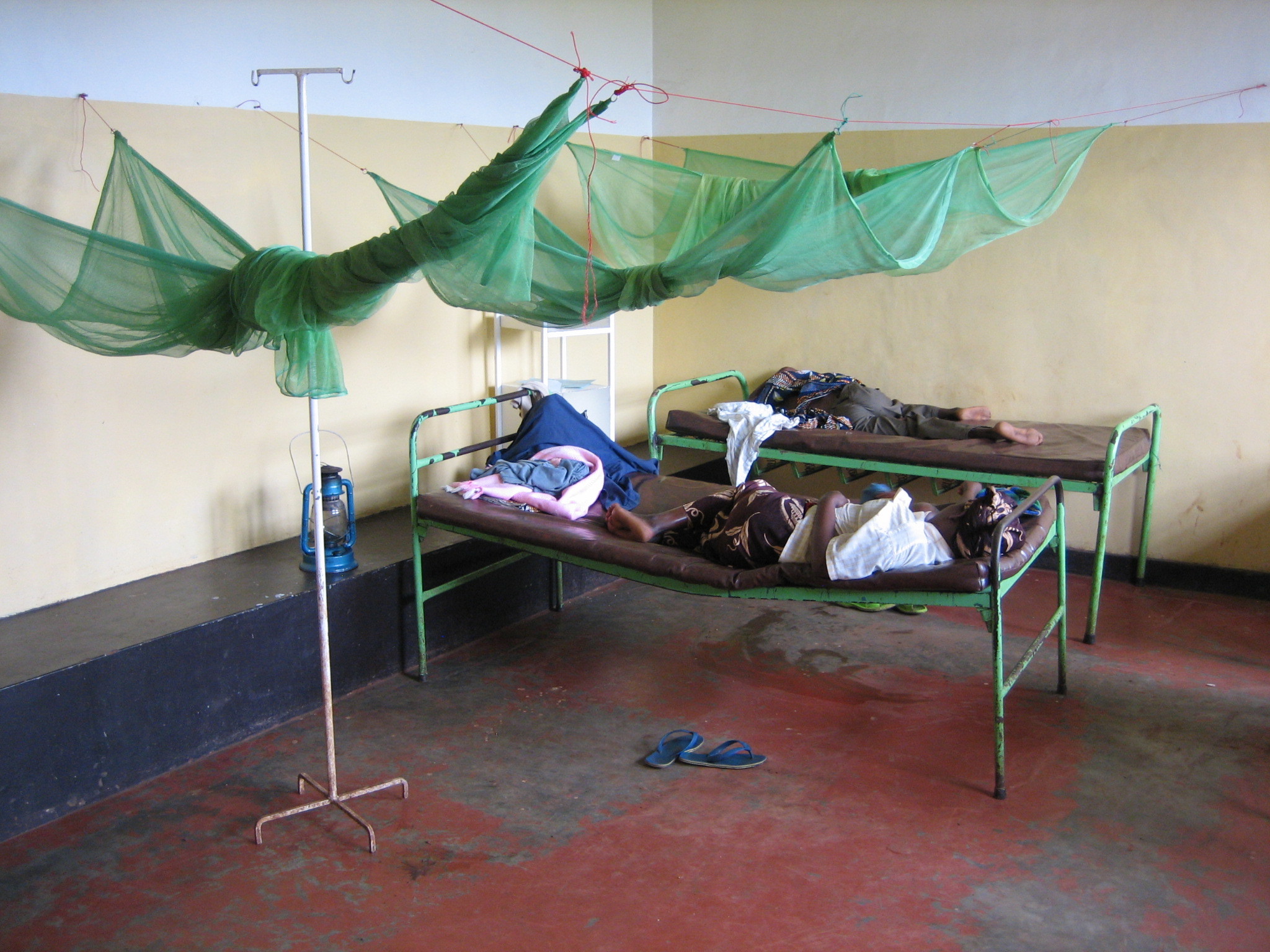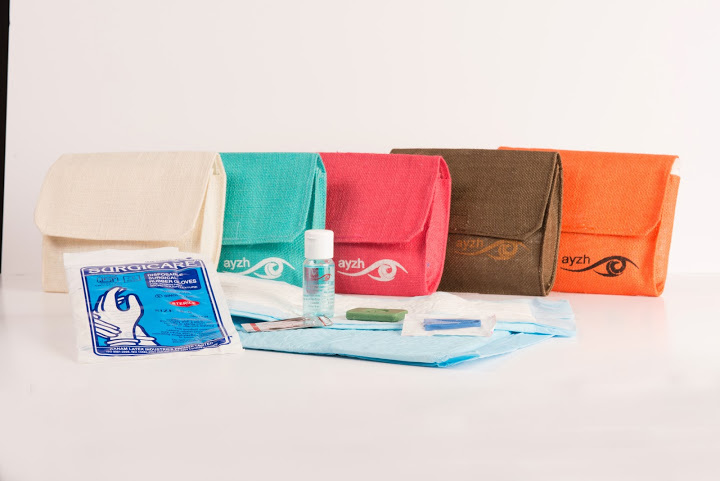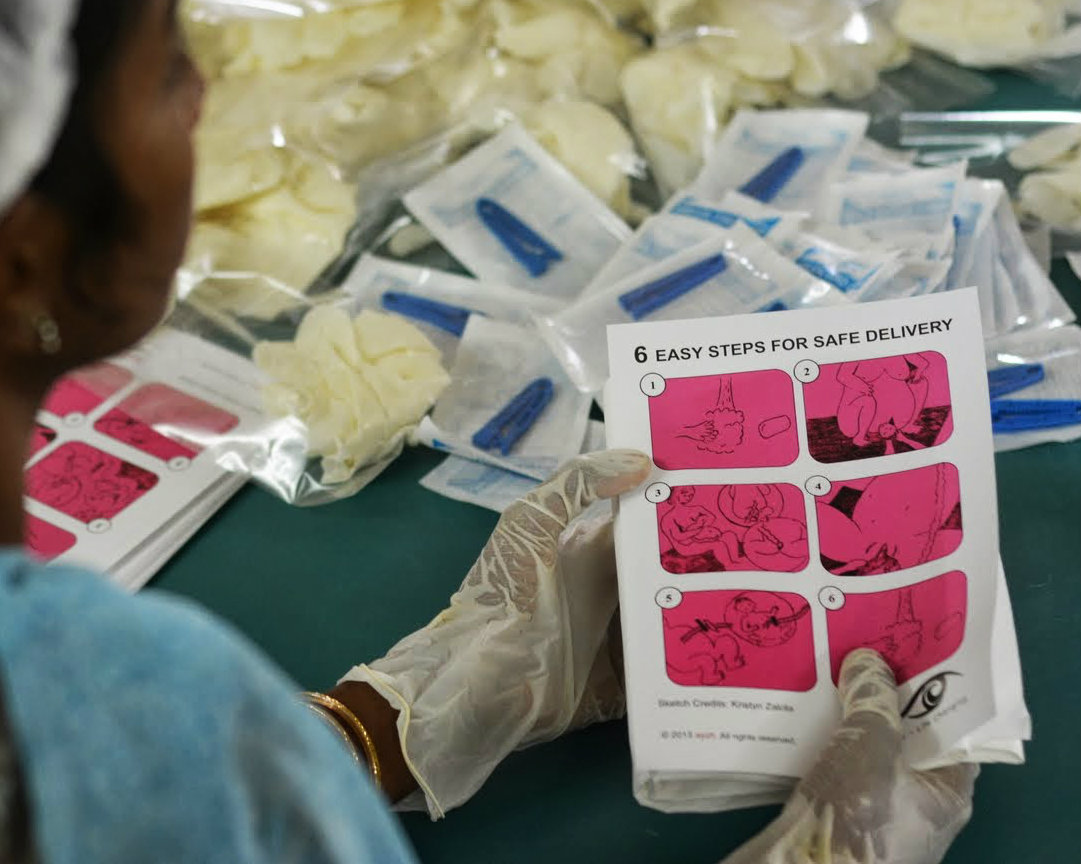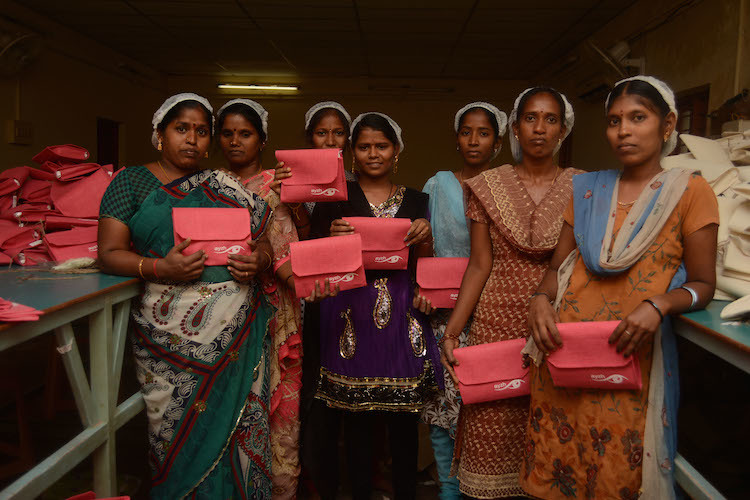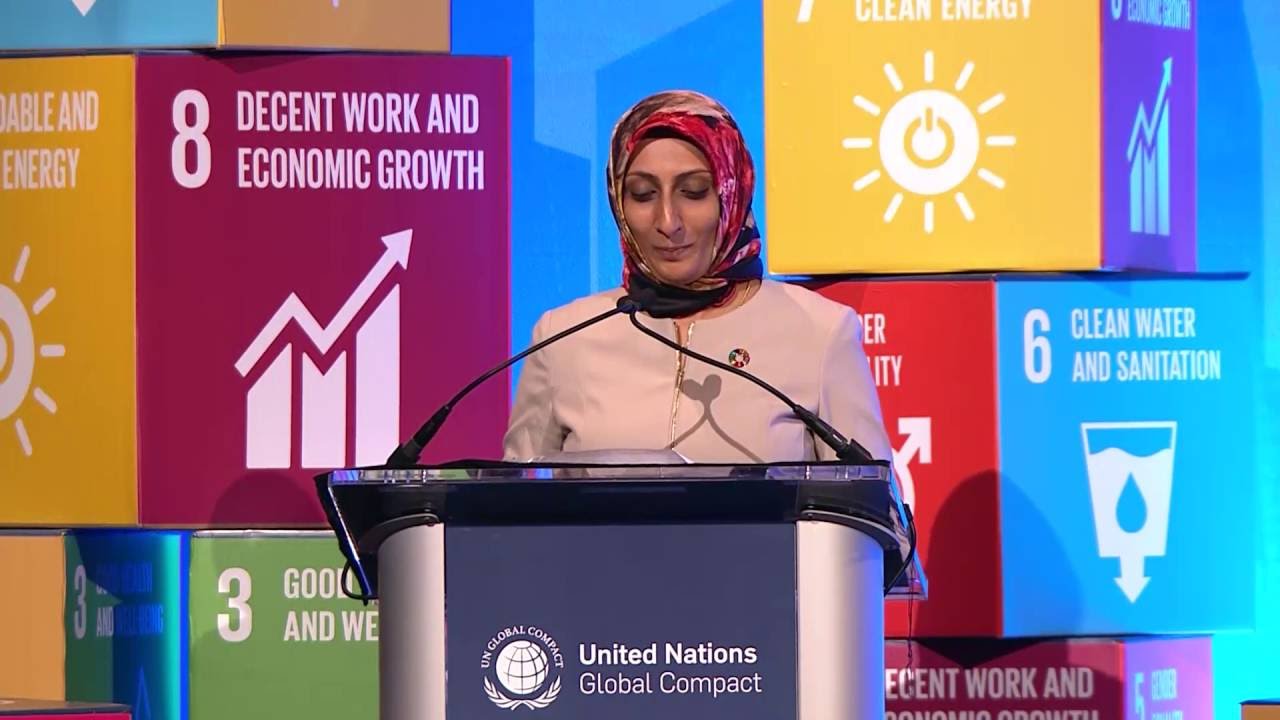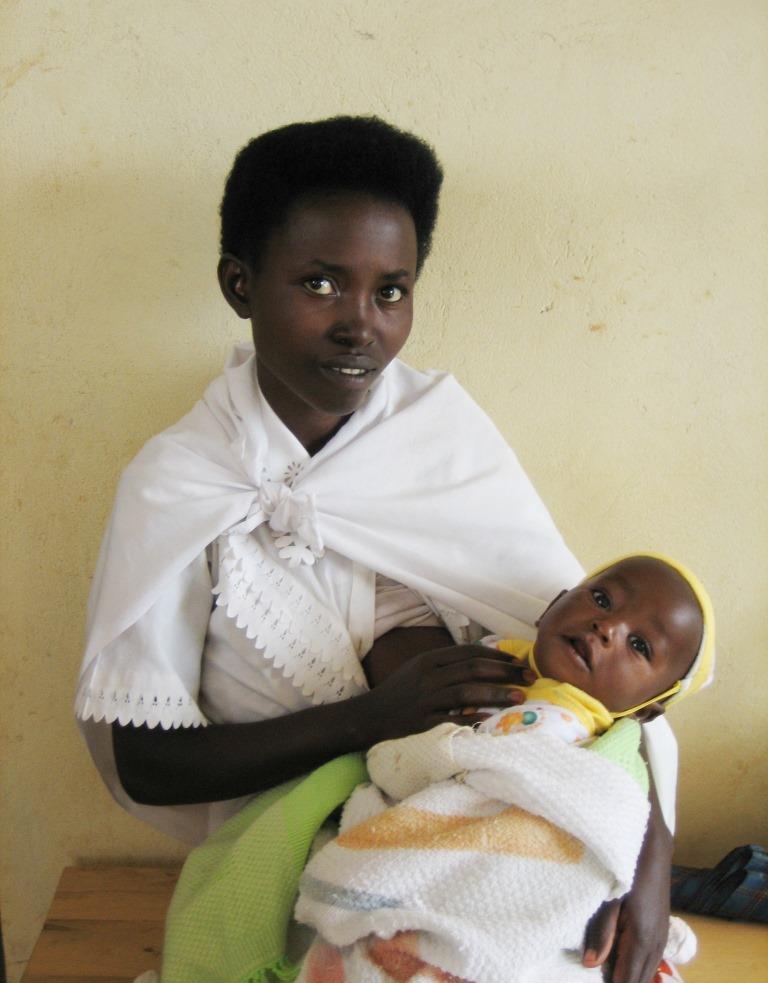The Issue: Unhygienic Births
In 2008 in a village in rural India, a highly-respected midwife was talking to a young female entrepreneur just outside her hut. The visitor was Zubaida Bai and she was traveling across the vast South Asian country to learn more about women’s health issues. She and her husband, Habib Anwar, were launching an organization together, Ayzh (pronounced “eyes”), and wanted to focus on addressing women’s most pressing health needs. Zubaida says they wanted to start Ayzh because, “We both have seen our mothers struggle and make do with what opportunities they had. There was a lack of education and a system of, ‘You’re 17 and 18 and you get married and settle down in life.’” In a country where women struggle and settle as a matter of course, Zubaida and Habib wanted Ayzh to provide options and choice.
During her conversation with the midwife, Zubaida remembers thinking, “I was curious, as a mom, how the midwife delivered a baby. I asked, ‘Do you have all the tools?’ The midwife went inside and pulled out a tool from under her bed. It was a farming sickle, the same tool used to cut grass. She announced proudly, ‘We use this [to cut the umbilical cord].’”
Zubaida left that conversation feeling disturbed. She kept thinking, “There’s something really wrong in what I saw.” She began researching about birthing practices in low-resource settings and learned more about unhygienic births. She read studies, talked with maternal and child health experts, and had more conversations with women and girls across India. This is what she found.
An otherwise natural and straightforward event can become deadly when infections like sepsis or tetanus pass to mother and newborn through rusty tools, unwashed hands of those assisting with delivery, and dirty and unsanitary birthing surfaces. When left untreated, these infections lead to almost 1 million maternal and newborn deaths each year in the developing world.
In the Photo: A maternity ward in Niger Photo Credit: Siri Wood
Siri Wood, a Senior Program Officer at PATH, an international health organization based in Seattle, specializes in health communications and has worked on providing options for clean and safe deliveries, family planning and other public health topics for over 25 years. While living and working in developing countries, Ms. Wood observed a range of quality in birth settings, from simple rural birthing huts to modern, urban maternity wards.
She explains, “During home births, unhygienic tools such as knives, scissors, pieces of glass, unclean razor blades or farming tools may be used to cut the umbilical cord.” In addition to using dirty and unsterilized tools, the actual birthing areas can be unhygienic. “In some cultural settings, birth is seen as a polluting process and pregnant women may be relegated to an animal shed or an unclean space in the home for delivery.”
Women and girls are often encouraged to travel to give birth at urban health centers or hospitals because a trained birth attendant can manage obstetric complications and prevent or treat infection with medicine like antibiotics.
In the Photo: A health center in Mozambique Photo Credit: Siri Wood
But health centers and hospitals in low-resource settings often lack clean water for hand washing, clean and sterile tools required for safe births, and sufficiently trained staff.
In the Photo: A maternity ward in Rwanda Photo Credit: Siri Wood
Existing Solutions
Clean birth kits, introduced by the World Health Organization (WHO), can help prevent maternal and newborn infections. These kits include tools to help birth attendants, and mothers who deliver alone, achieve the “six-cleans” that prevent infection: clean hands, clean perineum, clean delivery surface, clean cord cutting implement, clean cord ties or clamps, and clean cord care. Ms. Wood explains that to be most effective, clean birth kits should exist as part of a larger system of care. “Clean delivery kits are most effective when a woman also has access to a skilled birth attendant, a hygienic birth setting, information about her birth options, and access to emergency care. And of course, love and support from her community and her partner. We think of the latter as frosting on the cake, but it could actually be a really decisive component in the woman’s delivery experience and maternal and newborn outcomes.”
The Innovation
After reading the research, listening to women and girls, and scanning the globe for existing solutions, Zubaida had an idea. Ayzh could package clean birth kit supplies in a purse that mothers could keep after delivery. Ayzh could also employ underserved women to assemble the kits in India. The idea emerged from a host of experiences in Zubaida’s life: her childhood fascination with building things, her background as a mechanical engineer, her experience in product design for low-resource settings, and a life-long desire to make positive change in the lives of vulnerable women and girls. In 2010, Zubaida and Habib launched their clean birth kit, janma which means “happy birth” in Hindi.
In the Photo: Ayzh’s kit options Photo Credit: Ayzh.com
Ayzh distributes the kits directly to healthcare facilities, and to small and large NGOs and non-profits. Women can purchase the kits at health centers and hospitals for about 3.00 USD. The kits are then used by staff during delivery.
The purse is made from jute, a strong, natural fibre. Jute is second only to cotton in terms of global production and consumption but requires far fewer pesticides and fertilizers. In addition to being environmentally friendly, it’s one of the most affordable fibres. As pictured above, the kits come in a variety of colors. The kit includes soap for cleaning the hands of the attendant and mother’s perineum, a clean plastic sheet to provide a clean surface for delivery, a clean and sterile razor blade for cutting the umbilical cord, cord clamps to help with cutting, and a cloth for wiping the newborn. That’s the basic kit. Ayzh also offers an intermediate and comprehensive kit. The intermediate kit (recommended by Ayzh) comes with everything in the basic kit plus an identification tag for mother and child, a hat for the newborn, and sanitary pads. The comprehensive kit includes everything in the intermediate kit plus elbow length sterile gloves, a baby receiving towel, sterile cotton pads for cleaning the baby’s eyes, a mucous extractor for babies who don’t breath immediately and require basic resuscitation, an absorbent labor table cover sheet, and a carry bag.
Related article: “THE KEY TO OUR DEVELOPMENT CHALLENGES? EMPOWERED WOMEN.”
Ayzh offers other kits to support the health and wellbeing of women and children. Some examples include a menstrual hygiene kit that comes with sanitary pads, hand sanitizer, paper bags, underwear, and an instruction sheet; an essential newborn kit that includes resuscitation tools and a thermometer; a postpartum kit that comes with post-delivery pads and mesh underwear and; a postpartum kit for mother and family that includes a blanket, toy, gown for mother and a breast feeding guide.
In the Photo: Ayzh’s kit instructions Photo credit: Ayzh.com
To date, Ayzh has sold over 300,000 janma kits in developing countries like Afghanistan, Gambia, Laos, Ghana, Malawi, Nigeria, Zambia, and Haiti. Mohammad Imran, a pharmacist who sells the kits to expectant families at a hospital in India says, “In our hospital we’re doing nearly 10-15 deliveries and almost all of the customers purchase this janma product.” Dr. Rashida, an obstetrician and gynecologist at the hospital adds, “It has really helped all the people including the hospital staff, the doctors and the patients. We feel so clean and sterile when we conduct the labor.” Dr. Chad Pasha often uses the one-time-use kits. He likes that they include everything that’s needed in the operating theater.
Ayzh also employs underserved women to assemble kits in its 3 factories in India. Ayzh infuses this “By women, for women” approach throughout their operations: from co-creating purse designs to ensure that purses are culturally acceptable, to introducing new kits based on the underserved health care needs of women.
In the Photo: Ayzh women making kits Photo Credit: Ayzh.com
Ayzh is doing its part to achieve United Nations Sustainable Development Goal (SDG) 3, to reduce maternal mortality and end preventable deaths of newborns by 2030. They’re also moving the needle on SDG 5, achieving gender equality and empowerment for all girls. In addition to selling a product that can reduce maternal and newborn mortality, making kits available at hospitals enables a powerful new purchasing choice for women, girls, and their families. Each time someone decides to purchase the kit, they’re making a public statement that, “Women and girls’ lives matter.” The interconnected nature of these goals highlights the theme of HRH Princess Lamia Al Saud’s recent article . She notes that achieving SDGs can happen only after, or in combination with, efforts to achieve gender equality and empowerment for all girls.
In the Photo: Zubaida Bai Photo Credit: UN Global Compact
A For-Profit in a Non-Profit World
Zubaida says most people are surprised to learn Ayzh is a for-profit company given its humanitarian focus. Adding to the confusion is the fact that many organizations in the maternal health space are non-profit and often provide free or highly subsidized products and services. So why structure Ayzh as a for-profit in a traditionally non-profit space? Zubaida explains.
First, Zubaida and Habib wanted, “To create a competitive and sustainable market for clean birth kits. 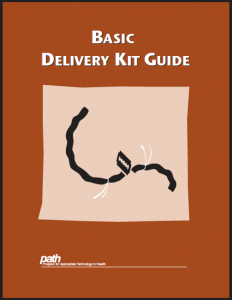 “We’ll be successful when we have enough competition and can then walk away.” In a competitive market, manufacturers compete against each other to make the highest quality product and sell it at the lowest possible price. In this scenario, only a few manufacturers come out on top, but with more high-quality, low-price options, every customer wins. (For anyone interested in joining Zubaida and Habib, PATH created a step-by-step manual for organizations interested in developing clean birth kits and guidelines for their use.)
“We’ll be successful when we have enough competition and can then walk away.” In a competitive market, manufacturers compete against each other to make the highest quality product and sell it at the lowest possible price. In this scenario, only a few manufacturers come out on top, but with more high-quality, low-price options, every customer wins. (For anyone interested in joining Zubaida and Habib, PATH created a step-by-step manual for organizations interested in developing clean birth kits and guidelines for their use.)
The second reason was to increase women’s engagement in their healthcare by providing them with a high-quality product at an affordable price point. Zubaida explains, “For many people, it’s very difficult to believe that poor people can buy products, and want high quality products.” Making the choice, or influencing their family’s choice, to purchase the kit can be an empowering moment for women.
A Way Forward
The problem of maternal and newborn death is grave, but innovative solutions like Ayzh’s birth kit in a purse and for-profit business model move the world closer toward achieving SDG 3 and 5. Zubaida emphasizes that Ayzh’s kits promote equity, agency, health and safety for women and girls who, “deserve the most, but often get the least.” When I asked how we, the Impakter community, could support Ayzh’s work Zubaida said, “The task would be to take women’s health issues seriously. It’s an issue that needs sustainability, needs more voices and needs more people to understand that there’s a problem in the first place. We all have the power to transform the way that women’s health is looked at.”
In the Photo: Mother and child in Rwanda Photo Credit: Siri Wood
Recommended reading: “STIMULATING INNOVATION AND PARTNERSHIPS WITH AFRICA’S TRUST FUND”


